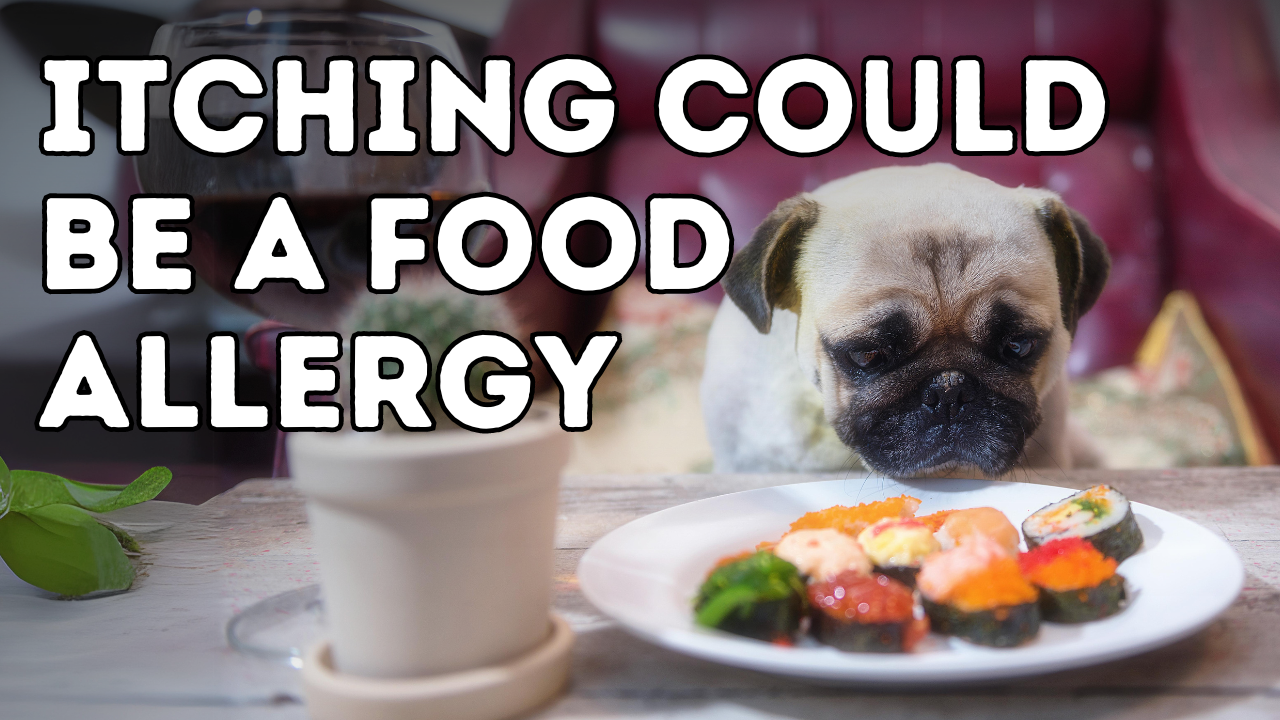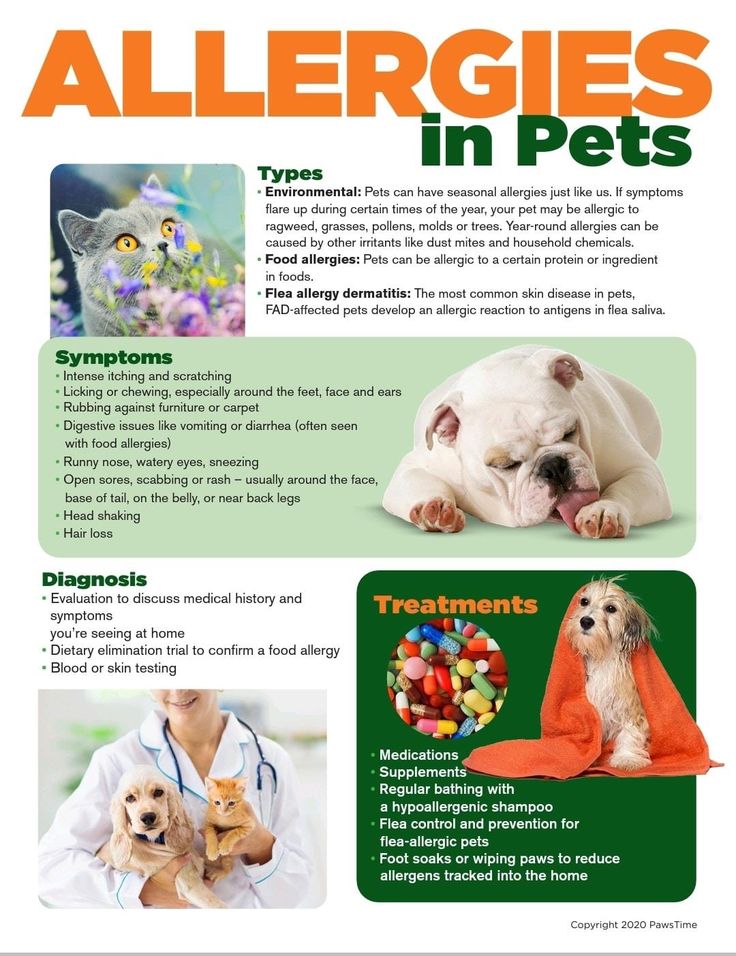Food Allergy in Dogs: Signs, Solutions, and Natural Remedies

You have not likely done a proper food trial for your allergic dog or cat. In this article I’ll show you an easier way.
There are MANY possible treatments, but one supplement stands out for prevention/treatment, and it is very inexpensive.
It’s the essential fatty acids which have some great research showing their effectiveness over the last 30 years.
We have a well touted EFA supplement in the form of Krill which has helped many an itchy dog, cat and person. One big concern though has been the presence of toxins in many of the salmon oil supplements, but fortunately, this is not an issue with Krill.
Help Your Pet Thrive with Dr. Jones’ Omega 3 Krill Oil – Shop now!
Dr Jones’ ULTIMATE Omega 3 Formula for Dogs and Cats


Rule Out Dog and Cat Food Allergies with a Food Trial
Food allergies affect up to 15% of dogs and cats, and it’s something I often saw in my practice. If your pet has both skin symptoms (like itching and hair loss) and intestinal symptoms, it’s worth suspecting a food allergy.
In cats, especially those with itching on the face and neck, vomiting, or diarrhea, over 40% of the cases can be attributed to food allergies.

Signs of Food Allergies in Dogs and Cats
Here’s what to look for:
- Over-grooming in Cats: Cats who groom excessively, especially in one area.
- Self-grooming in Dogs: Dogs may focus on licking or scratching.
- Hot Spots or Eczema: Skin irritation, often red and inflamed.
- Hair Loss: Fur falling out due to repeated scratching.
- Gastrointestinal Issues: Soft stool, diarrhea, vomiting, and gas.
- Increased Bowel Movements: More frequent bathroom trips.
- Watery Eyes or Discharge: Eye irritation, redness, or swelling.
- Sneezing or Reverse Sneezing: Especially in dogs.
- Swelling Around Eyes or Face: A less common but telling symptom.
Many of these signs overlap with other allergies, like environmental or flea bite allergies, so food allergies should be considered alongside these possibilities.
Common Food Allergens in Dogs and Cats
In dogs, the most frequent offenders are proteins from dairy, beef, chicken, eggs, soy, and wheat gluten. For cats, the most common culprits are beef, fish, and chicken. However, cats can also develop allergies to wheat, corn, dairy, lamb, eggs, barley, and rabbit.
In fact, almost any food ingredient can trigger an allergic response, with proteins being the most likely cause. But remember, even food additives and other substances can sometimes be responsible.
Diets for Food Allergies
There’s no perfect “hypoallergenic” diet, though hydrolyzed diets from veterinarians come close. These diets use proteins broken down into smaller pieces that are less likely to trigger an immune response.
Diagnosing Food Allergies
Unfortunately, there’s no quick and easy test for food allergies. Tests using blood, saliva, or hair are available, but there’s no solid proof they work. The only reliable method for diagnosing food allergies is through an elimination trial.
What is an Elimination Trial?
An elimination trial involves feeding your dog or cat a diet that contains no ingredients they’ve eaten before. You must also avoid treats, supplements, and even flavored medications during the trial period.
If your pet’s allergy symptoms disappear during the trial, you can reintroduce their old food to confirm the diagnosis. If the symptoms return within a week, you can be confident your pet has a food allergy.
Veterinary Diets for Food Allergies
Veterinary hydrolyzed protein diets are commonly used for food trials. These diets break down protein molecules so that your pet’s immune system doesn’t recognize them, reducing the chance of a reaction. Popular options include:
- Hill’s Prescription Diet z/d®
- Royal Canin Hypoallergenic Hydrolyzed Protein®
- Purina ProPlan Veterinary Diets HA Hydrolyzed®
Nurture Your Pet’s Health the Natural Way with Dr. Jones’ All-Natural Solutions
Dr. Andrew Jones’ All-Natural Pet Shop

Homemade Food Trial for Dogs
If you prefer a more natural approach, here’s a simple homemade dog food recipe to use for an elimination trial:
- 1/3 Turkey (1 lb, chopped and cooked)
- 1/3 Brown Rice (2 cups, cooked)
- 1/3 Veggies (Kale or frozen mixed veggies)
- 2 tablespoons Sunflower Oil
- 1000 mg Krill Oil
- 1 teaspoon Calcium (optional, needed for long-term feeding)
For a 50lb dog, feed 2 cups twice a day.
Homemade Food Trial for Cats
For cats, here’s a basic ground turkey recipe that’s both simple and effective:
- 1 lb Ground Turkey
- 1 tablespoon Sunflower Oil
- 500 mg Krill Oil
- 1/4 tsp Taurine Powder (or a 500 mg tablet)
Sauté the ground turkey in sunflower oil, mix in the Krill oil and taurine supplement, and serve. This recipe makes about 1 cup of food, which is enough for one day.
Most cats will eat 1/3 of a cup twice daily. Feed only this for at least 6 weeks, and ideally for 12 weeks.
The Results of a Food Trial
About 80% of dogs will show improvement by the six-week mark. If your pet’s symptoms improve, you can feel confident that food allergies were the cause.
Take Control of Your Pet’s Allergies
It’s rare for pet owners to perform a proper food trial, but it can be well worth the effort. If successful, you can avoid using long-term medications to control your pet’s allergies.
If you’re considering trying a food trial, now is the perfect time to try our Essential Fatty Acid supplement for your dog or cat. It can provide relief from allergies and offers additional benefits for joint health, immune function, and even ear infections.
Get your toxin-free anti-itch Krill Oil today:
Dr. Jones’ ULTIMATE Omega 3 Formula for Dogs and Cats


I was hoping you sell hydrolyzed protein dog diets. For food allergies. I suspect one of my dogs has a food reaction. Not sure, as we just got started. The vet put her on antibiotics and acid reduction.
My gut instinct tels me that it may well be food allergies.
Hi Johanna unfortunately we do not carry that, however we do have supplements that can help with allergies, here:
https://shop.veterinarysecrets.com/supplements/allergies.html
Hi. I’ve noticed ULTIMATE FELINE is included in the list of products to address allergies in cats however two of the ingredients are chicken-based. If a cat has a food allergy to chicken, do the other ingredients in ULTIMATE FELINE counteract the potential triggering of an allergy from the chicken on this formula. In other words can I give ULTIMATE FELINE to my cat with a chicken allergy or will it cause an allergic reaction?
Hi Julie, the answer to that is ‘it depends’. It just depends on how sensitive your cat is to chicken. About 1/2 of a serving (1.4g) is chicken powder/chicken liver, it’s really not much chicken but if your cat is very sensitive then it may cause a reaction. The best way would be to test and order the trial – if it doesn’t work out you would get a full refund.
You can order the trial here:
https://thecatsupplement.com